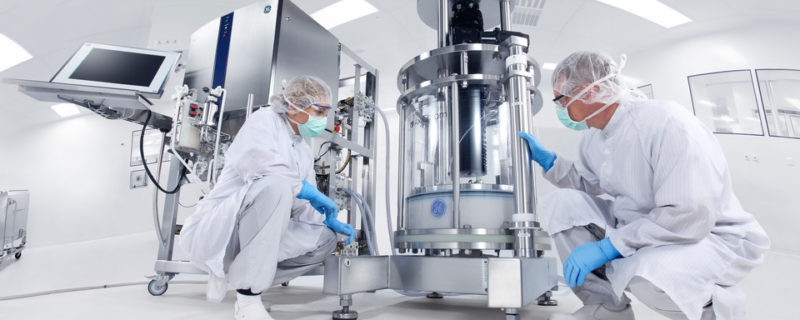SYLLABUS
GS-3: Awareness in the fields of bio-technology.
Context:
Recently, the government launched a network of advanced biomanufacturing hubs, called High-Performance Biomanufacturing Platforms, to scale up the country’s bioeconomy and accelerate innovation across diverse sectors.
More on the News
- The High-Performance Biomanufacturing Platforms have been launched under the BioE3 (Biotechnology for Environment, Economy and Employment) Policy, under the collaborative efforts of the Department of Biotechnology (DBT) and the Biotechnology Industry Research Assistance Council (BIRAC).
- BIRAC is a not-for-profit enterprise under DBT which aims to strengthen biotech enterprises through strategic research, innovation, and development of nationally relevant products.
- The newly launched platforms bring together a network of advanced bio-foundries and biomanufacturing hubs to provide state-of-the-art infrastructure, technology, and expertise for scaling up bio-based innovations from the laboratory to pilot and pre-commercial stages.
- A total of 21 advanced bio-enabler facilities (biofoundries and biomanufacturing hubs) across India have been brought under this initiative.
- These platforms will offer shared infrastructure for startups, small and medium enterprises, industries, and academia to test, scale, and commercialise bio-based technologies.
- The platforms’ focus areas include microbial biomanufacturing, smart proteins, sustainable agriculture, functional foods, carbon capture, marine biotechnology, and next-generation cell and gene therapies.
Significance of the Initiative
- Boosts India’s Bioeconomy: Provides state-of-the-art biofoundries and biomanufacturing hubs to accelerate scaling of innovations from lab to pre-commercial stages, strengthening India’s position as a global leader in the bioeconomy.
- Supports Startups & Industry: Offers shared infrastructure and expertise to startups, SMEs, industries, and academia, reducing R&D costs and fostering faster commercialization of bio-based technologies.
- Promotes Sustainable Innovation: Integrates tools like synthetic biology, AI/ML, and omics to drive solutions in health, agriculture, clean energy, and climate resilience, advancing sustainable development goals.
Overview of India’s Bioeconomy Sector
- The bioeconomy sector has grown from $10 billion in 2014 to $165.7 billion in 2024, with a target of $300 billion by 2030.
- The sector contributes 4.25% to GDP with a compound annual growth rate (CAGR) of 17.9% over the past four years.
- India now accounts for 21 out of 121 bio-companies globally. Additionally, Biotech startups rose from 50 (2014) to 13,000+ (2025), supported by nearly 100 BIRAC incubators.
About BioE3 Policy
- The Bio E3 policy is aimed at fostering high-performance biomanufacturing, innovation, and the development of a circular bioeconomy.
- The policy marks a crucial step in positioning India as a global bio-economy leader and is set to spark a “bio-revolution” in India similar to the IT revolution in the Western world.
- The policy is designed to supplement, rather than replace, traditional supply methods with biotechnological solutions to meet the demands of a developed India by 2047.
- Key Features:
- Establishment of Biomanufacturing Hubs: The policy will accelerate technology development and commercialisation by establishing Biomanufacturing & Bio-AI hubs and Biofoundry.
- Prioritisation of Green Growth: The policy emphasises regenerative bioeconomy models to promote green growth.
- Job Creation: A key objective is the expansion of India’s skilled workforce, creating new employment opportunities in the biotech sector.

